In an age of rapid technological advancements and conveniences, it’s easy to forget that our ancestors possessed a host of skills essential for survival. These skills, though largely forgotten today, were once second nature to those who lived closer to nature and depended on their resourcefulness. As we delve into these forgotten arts, we gain a deeper appreciation for the resilience and ingenuity of past generations.
1. Fire Starting Without Matches

Imagine being in the wilderness without a lighter or matches. Fire starting was an essential skill for warmth, cooking, and protection. Our ancestors mastered the art of striking flint against steel to create life-saving sparks.
Today, this skill is nearly forgotten due to modern conveniences, yet it’s a crucial survival technique. The patience and precision required to produce a flame from natural materials showcase human ingenuity.
Fun fact: The knowledge of fire-making dates back over 400,000 years, making it one of the oldest skills known to man.
2. Building Natural Shelters
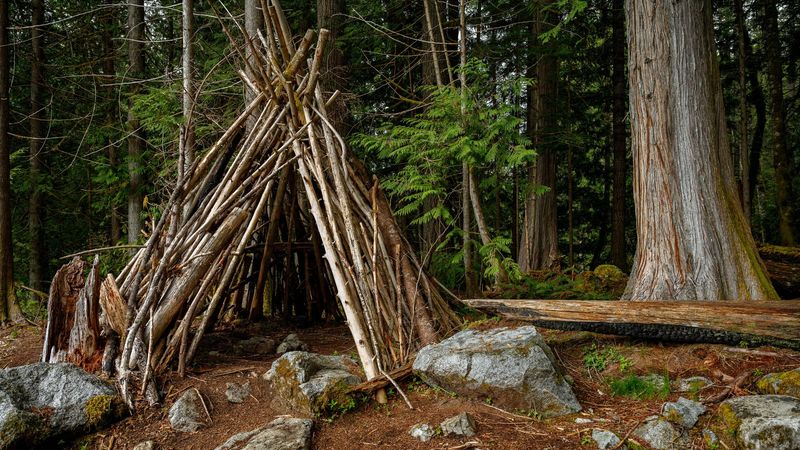
In times gone by, knowing how to construct a shelter from natural materials was vital. It provided protection against the elements and predators.
Our forebears could whip together a sturdy lean-to or debris hut using only what the forest offered. This skill reflects the harmonious relationship between humans and nature.
Quirky bit: Some indigenous tribes could build shelters in mere hours, a testament to their survival prowess and deep understanding of their environment.
3. Foraging for Wild Edibles
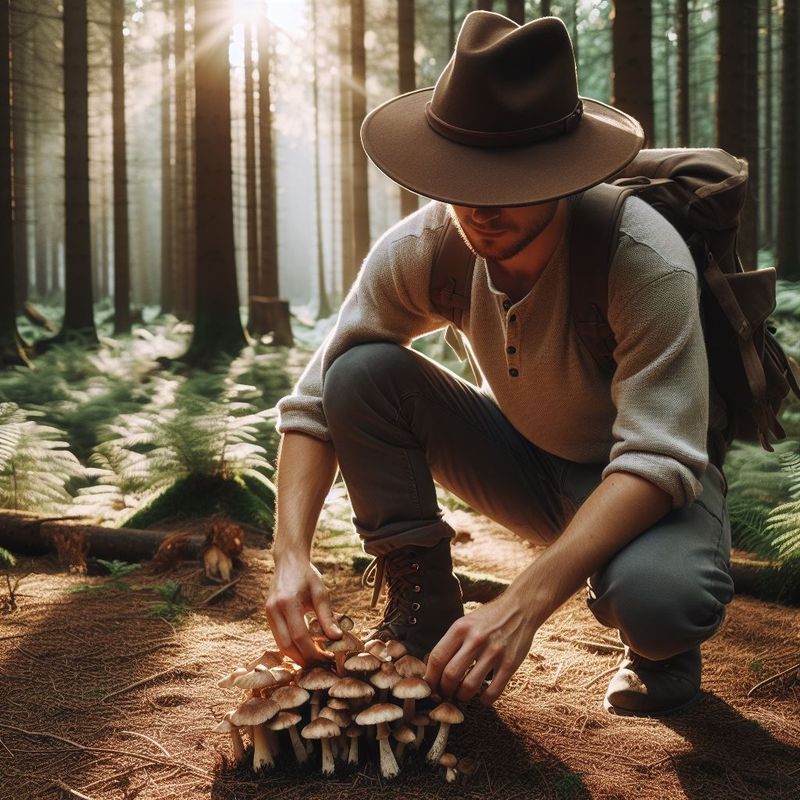
Foraging for wild edibles was a daily activity for our ancestors. They skillfully identified which plants were edible, medicinal, or poisonous.
This knowledge ensured they had a diverse diet rich in nutrients. Today, foraging can be a rewarding way to connect with nature.
Did you know? Many common weeds, like dandelions, are fully edible and packed with vitamins. This skill underscores the bounty nature provides if we only know where to look.
4. Navigating by the Stars

Long before GPS, our ancestors traveled vast distances using only the stars for guidance. Navigation by the stars required a deep understanding of constellations and their positions throughout the year.
This skill enabled explorers to journey across oceans and deserts with confidence. It’s a reminder of the guidance that lies above us.
Star fact: The North Star, Polaris, has been used for navigation for centuries because it remains nearly fixed in our sky, providing a constant point of reference.
5. Animal Tracking

Tracking animals was essential for hunting and safety. Our ancestors could read the ground like a storybook, identifying species, direction, and even health from tracks.
This skill required keen observation and deep knowledge of animal behavior. In modern times, it’s a rare talent, mostly practiced by naturalists and survivalists.
Wise words: “A track is but a chapter in a creature’s life, waiting to be read by those who can see.” This emphasizes the connection between hunter and prey.
6. Preserving Food Naturally

Before refrigeration, food preservation was crucial for survival. Methods like salting, smoking, and fermenting were used to extend the shelf-life of perishable goods.
These techniques allowed our ancestors to thrive during harsh winters and lean times. They highlight the creativity involved in ancient food storage.
Historical tidbit: Fermented foods like sauerkraut were not only preserved but also provided essential nutrients that helped prevent scurvy among sailors.
7. Tanning Animal Hides
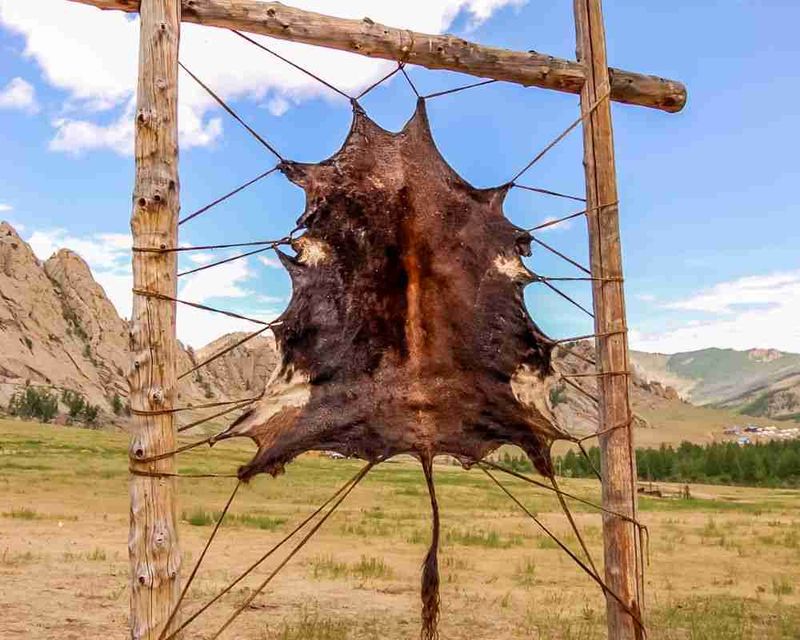
Transforming raw animal hides into leather was a vital skill for clothing and tools. Tanning was a labor-intensive process requiring knowledge of natural tanning agents.
This practice reflects the resourcefulness of using every part of an animal. Today, it’s an artisanal craft, preserving a piece of history.
Fun fact: Some ancient tanning methods used urine, showcasing the lengths people went to harness the environment’s resources.
8. Herbal Medicine Crafting
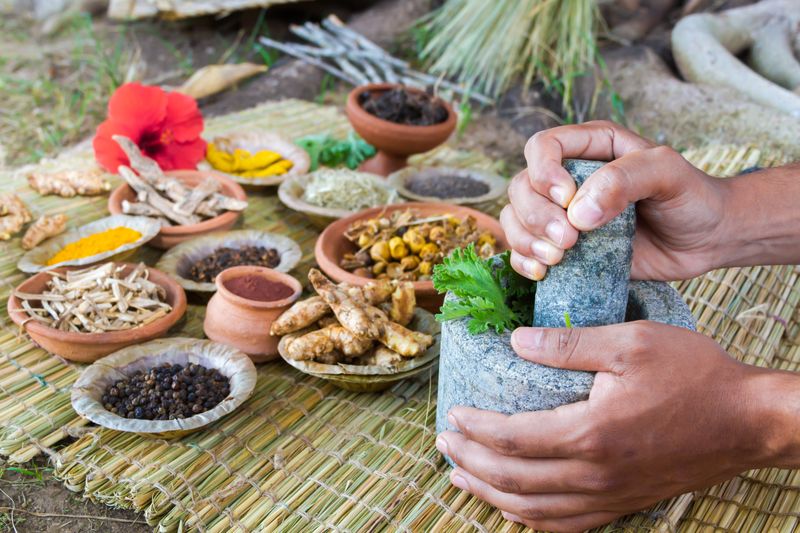
Relying on nature, our ancestors crafted herbal remedies for ailments. This skill required extensive knowledge of plants’ healing properties and careful preparation techniques.
Herbal medicine was the precursor to modern pharmaceuticals. Reviving these practices can offer alternative health solutions today.
Did you know? Willow bark, used for centuries to relieve pain, led to the development of aspirin.
9. Blacksmithing

Blacksmithing was at the heart of every community, providing essential tools, weapons, and household items. This skill involved heating and shaping metal with precision.
Blacksmiths were revered for their craft, which combined strength and artistry. Although less common today, blacksmithing remains a symbol of craftsmanship and innovation.
Forging fact: The term “blacksmith” comes from “black metal,” referring to iron, and “smite,” meaning to strike.
10. Weaving Textiles by Hand

The art of weaving textiles was essential for creating clothing and household items. Hand weaving required skill, patience, and creativity.
Our ancestors produced beautiful fabrics using natural fibers, showcasing their artistry. Today, hand weaving is a cherished craft, preserving cultural heritage.
Historical highlight: The intricate patterns in traditional textiles often tell stories or signify social status.
11. Making Pottery

Pottery was indispensable for storing food and water. This skill required mastering the clay’s properties and the firing process.
Potters created both functional and decorative pieces, reflecting cultural aesthetics. Making pottery by hand connects us to our ancestors’ daily lives.
Clay fact: The earliest known pottery dates back to 20,000 years ago, highlighting the long-standing human relationship with this art form.
12. Hunting and Gathering
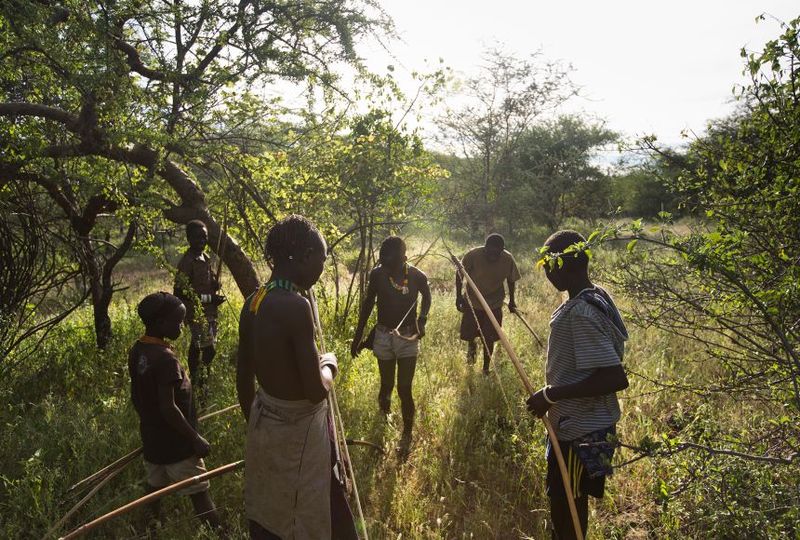
Hunting and gathering were foundational survival skills, providing sustenance and materials. This required knowledge of animal habits and plant identification.
Our ancestors’ lives revolved around these activities, fostering community collaboration. In modern times, it’s seen as a way to reconnect with nature.
Cultural note: Many hunter-gatherer societies had rich traditions and deep respect for the earth, which sustained them.

